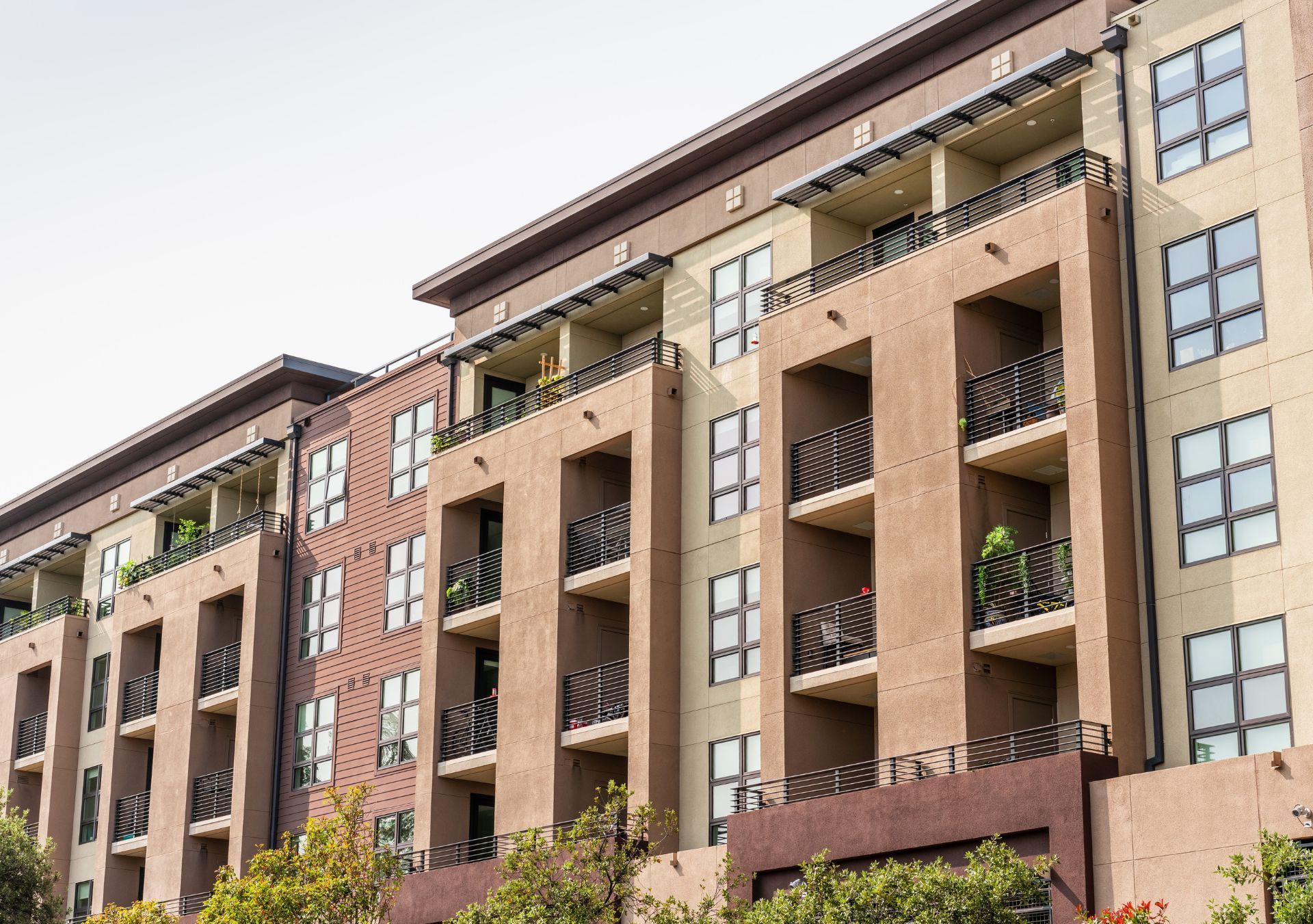
Most Common Personal Policies
Index
Contact Us
In the vibrant state of Arizona, where the sun shines brightly and the landscapes are breathtaking, many individuals choose to call a condo their home. While condo living offers a unique blend of convenience and community, it also comes with specific insurance needs. Understanding Arizona condo insurance is crucial for homeowners to protect their investment and ensure peace of mind. This comprehensive guide will delve into the essentials of condo insurance in Arizona, covering everything from coverage types to costs, and tips for choosing the right policy.
What is Condo Insurance?
Condo insurance, often referred to as HO-6 insurance, is a specialized policy designed to protect condo owners. Unlike traditional homeowners insurance, which covers the entire structure and property, condo insurance focuses on the individual unit and personal belongings. This type of insurance typically covers personal property, liability, and improvements made to the unit.
Understanding the Basics
At its core, condo insurance is meant to fill the gaps left by the condo association's master policy. While the association's policy usually covers the building's exterior and common areas, it often does not encompass the interior of individual units. Therefore, having a personal condo insurance policy is essential for safeguarding personal property and liability. Furthermore, many condo owners may not realize that their personal belongings, such as electronics, furniture, and clothing, are not covered under the association's policy. This makes it crucial for owners to assess the value of their possessions and choose a coverage limit that adequately reflects their needs.
Importance of Condo Insurance
Condo insurance is not just a financial safety net; it offers peace of mind. In the event of theft, fire, or natural disasters, having adequate coverage ensures that homeowners can recover their losses. Additionally, condo insurance protects against liability claims, which can arise from accidents that occur within the unit. For instance, if a guest slips and falls in a condo owner's home, the insurance can cover medical expenses and legal fees, which can be substantial. Moreover, many policies also offer additional living expenses coverage, which can help pay for temporary housing if the unit becomes uninhabitable due to a covered loss, ensuring that homeowners are not left in a lurch during difficult times.

Types of Coverage in Arizona Condo Insurance
When exploring condo insurance options, it’s important to understand the various types of coverage available. Each type serves a unique purpose and can be tailored to meet individual needs.
Personal Property Coverage
This coverage protects personal belongings within the condo, including furniture, electronics, clothing, and other valuables. In Arizona, where the risk of theft and damage from natural disasters exists, having adequate personal property coverage is vital. Homeowners should take an inventory of their belongings to ensure they have sufficient coverage. Additionally, it's wise to consider the replacement cost versus actual cash value when selecting this coverage. Replacement cost coverage will provide funds to replace items at today’s prices, which can be significantly higher than the original purchase price, especially for electronics and appliances that tend to depreciate quickly.
Liability Coverage
Liability coverage is crucial for protecting homeowners against legal claims resulting from injuries or accidents that occur within their unit. For example, if a guest slips and falls, liability insurance can cover medical expenses and legal fees. In Arizona, where outdoor activities are popular, ensuring adequate liability coverage is essential. It’s also important to be aware of the limits of liability coverage; many policies offer options to increase these limits for added peace of mind. Homeowners may also want to consider umbrella insurance, which provides additional liability protection beyond the standard policy limits, safeguarding against larger claims that could arise from serious accidents.
Loss of Use Coverage
If a condo becomes uninhabitable due to a covered event, loss of use coverage can help homeowners pay for temporary living expenses. This can include hotel stays or rental costs, ensuring that homeowners are not left without a place to live while repairs are being made. In Arizona, where monsoon season can lead to unexpected flooding or storm damage, having this coverage can be particularly beneficial. Homeowners should familiarize themselves with the specific terms of their loss of use coverage, including any limits on the duration of coverage and the types of expenses that are reimbursable. Understanding these details can help homeowners navigate the challenges of displacement more effectively during stressful times.
Factors Influencing Condo Insurance Costs in Arizona
The cost of condo insurance in Arizona can vary significantly based on several factors. Understanding these factors can help homeowners make informed decisions when selecting a policy.
Location
The location of the condo plays a critical role in determining insurance costs. Areas prone to natural disasters, such as floods or wildfires, may have higher premiums. Additionally, urban areas with higher crime rates may also lead to increased costs due to the higher risk of theft or vandalism. For instance, condos located near the scenic yet wildfire-prone regions of the state may face steeper insurance rates, prompting homeowners to consider additional fire protection measures or even community initiatives to mitigate risks. Furthermore, proximity to emergency services can also influence costs; condos situated closer to fire stations or police departments may benefit from lower premiums due to the reduced response time in emergencies.
Building Age and Construction Type
Older buildings may have outdated electrical, plumbing, or structural systems, which can increase the risk of damage. Consequently, insurance companies may charge higher premiums for older condos. Conversely, newer buildings with modern construction materials and safety features may qualify for lower rates. Additionally, the type of construction—whether wood-frame, brick, or concrete—can also impact insurance costs. For example, wood-frame condos may be more susceptible to fire damage, leading to higher premiums, while concrete structures often enjoy lower rates due to their durability and resistance to various hazards. Homeowners should also consider any renovations or upgrades that enhance safety and security, as these improvements can lead to potential discounts on insurance premiums.
Deductibles and Coverage Limits
The chosen deductible and coverage limits directly impact the cost of the policy. A higher deductible typically results in lower premiums, but it also means homeowners will pay more out-of-pocket in the event of a claim. It's essential to strike a balance between affordable premiums and adequate coverage. Homeowners should carefully assess their financial situation and risk tolerance when deciding on deductibles. Additionally, understanding the specific coverage options available is crucial; policies may vary in terms of what is covered, such as personal property, liability, and loss of use. Some homeowners may opt for additional riders to cover valuable items like jewelry or art, which can further influence the overall cost of the insurance policy. By thoroughly reviewing these aspects, condo owners can tailor their insurance to fit their unique needs and potentially save on costs while ensuring comprehensive protection.
How to Choose the Right Condo Insurance Policy
Selecting the right condo insurance policy can be a daunting task, but with careful consideration and research, homeowners can find a policy that meets their needs.
Assess Your Needs
Before shopping for insurance, homeowners should assess their specific needs. This includes evaluating the value of personal belongings, understanding potential liability risks, and considering any unique features of the condo. An accurate assessment will help in determining the necessary coverage levels. For instance, if the condo has high-end appliances or custom finishes, it may be wise to opt for additional coverage to protect these investments. Similarly, if the homeowner frequently hosts gatherings, they should consider the liability implications of having guests in their space.
Compare Quotes
Obtaining quotes from multiple insurance providers is crucial for finding the best deal. Homeowners should compare not only the premiums but also the coverage options and limits. Online tools and insurance agents can simplify this process by providing side-by-side comparisons of different policies. Additionally, it’s important to inquire about discounts that may be available, such as those for bundling policies or for having security features installed in the condo. These savings can significantly lower the overall cost of insurance while still ensuring comprehensive coverage.
Read Reviews and Check Ratings
Researching the reputation of insurance companies is essential. Homeowners should read reviews and check ratings from independent organizations to gauge the reliability and customer service of potential insurers. A company with a strong track record of handling claims efficiently will provide added peace of mind. Furthermore, engaging with local homeowner associations or community groups can yield valuable insights into which insurers are favored by fellow condo owners. Hearing firsthand experiences can help homeowners avoid pitfalls and select a provider that aligns with their expectations for service and support.

Common Exclusions in Condo Insurance Policies
While condo insurance provides essential coverage, it is important to be aware of common exclusions that may affect homeowners. Understanding these exclusions can help prevent surprises when filing a claim.
Natural Disasters
Many condo insurance policies do not cover damage from natural disasters such as floods, earthquakes, or hurricanes. Homeowners in Arizona, particularly those in flood-prone areas, may need to purchase separate policies or endorsements to ensure adequate protection against such events. For instance, flood insurance is often provided through the National Flood Insurance Program (NFIP), which can be a vital resource for residents in high-risk zones. Additionally, homeowners should consider the geographical risks specific to their area, as some regions may be more susceptible to certain natural disasters than others, necessitating tailored coverage options.
Negligence and Intentional Damage
Damage resulting from negligence or intentional acts is typically excluded from coverage. For example, if a homeowner fails to maintain their property, leading to damage, the insurance company may deny a claim. It is crucial for homeowners to understand their responsibilities to avoid potential issues. Regular inspections and timely repairs can mitigate risks and demonstrate a homeowner's commitment to maintaining their property. Furthermore, intentional damage, such as vandalism or deliberate destruction, is also not covered, emphasizing the importance of fostering a respectful community environment within condo associations.
Wear and Tear
Normal wear and tear is generally not covered by condo insurance. This includes issues like aging appliances or gradual deterioration of the property. Homeowners should budget for maintenance and repairs to avoid unexpected expenses. Setting aside a reserve fund for ongoing upkeep can be beneficial, as it allows homeowners to address minor issues before they escalate into more significant problems. Additionally, many condo associations have specific guidelines regarding maintenance responsibilities, and understanding these can help homeowners stay proactive in preserving their living space and ensuring compliance with community standards.
Tips for Lowering Your Condo Insurance Premiums
While condo insurance is essential, homeowners may be looking for ways to lower their premiums without sacrificing coverage. Here are some practical tips to consider.
Bundle Policies
Many insurance companies offer discounts for bundling multiple policies, such as auto and condo insurance. Homeowners should inquire about bundling options to potentially save on overall premiums. In addition to auto insurance, consider including other policies like life or health insurance, as this can further enhance your savings. By consolidating your insurance needs with one provider, you not only simplify your payments but also strengthen your relationship with the insurer, which could lead to additional perks in the future.
Improve Security
Investing in security measures, such as alarm systems, deadbolts, and surveillance cameras, can reduce the risk of theft and damage. Many insurance providers offer discounts for homes equipped with security features, making it a worthwhile investment. Furthermore, consider joining a neighborhood watch program or utilizing smart home technology that allows you to monitor your property remotely. These proactive steps not only enhance your safety but also demonstrate to insurers that you are taking significant measures to protect your home, which can lead to even greater discounts.
Maintain a Good Credit Score
A good credit score can positively impact insurance premiums. Insurance companies often consider credit history when determining rates, so maintaining a strong credit score can lead to lower premiums over time. Regularly checking your credit report for errors and disputing inaccuracies can help you maintain a healthy score. Additionally, managing debt responsibly and making timely payments on existing loans can further bolster your credit profile, ultimately resulting in more favorable insurance rates and potential savings.
Understanding the Claims Process
Filing a claim can be a stressful experience, but understanding the process can help homeowners navigate it more smoothly. Here’s what to expect when filing a condo insurance claim in Arizona.
Document the Damage
Before filing a claim, homeowners should document the damage thoroughly. This includes taking photographs, listing damaged items, and gathering any relevant receipts. Proper documentation will support the claim and expedite the process. It’s also advisable to make notes about the circumstances surrounding the damage, such as the time and date it occurred, as well as any witnesses who may have seen the event. This detailed account can provide additional context that may be beneficial during the claims review.
Contact Your Insurance Provider
Once the damage is documented, homeowners should contact their insurance provider to report the claim. Most companies have a dedicated claims department that can guide homeowners through the process. It’s essential to provide accurate information and follow any instructions given by the insurer. Homeowners should also inquire about the specific coverage details of their policy, as this can vary significantly from one provider to another. Understanding what is covered can help set realistic expectations about the outcome of the claim.
Follow Up
After filing the claim, homeowners should follow up regularly to check on the status. Insurance companies may require additional information or documentation, so staying proactive can help ensure a timely resolution. It’s also helpful to keep a record of all communications with the insurance company, including dates, times, and the names of representatives spoken to. This documentation can be invaluable if any disputes arise or if there’s a need to escalate the claim for faster processing.
Know Your Rights
In Arizona, homeowners have specific rights when it comes to filing insurance claims. Familiarizing oneself with these rights can empower homeowners during the claims process. For instance, homeowners are entitled to a fair assessment of their claim and should not feel pressured to accept a settlement that does not adequately cover their losses. If a claim is denied, homeowners have the right to request a detailed explanation and can appeal the decision if they believe it was unjust. Understanding these rights can provide peace of mind and ensure that homeowners are treated fairly throughout the process.
Consider Professional Help
In some cases, navigating the claims process can be overwhelming, especially if the damage is extensive or if there are disputes with the insurance company. Homeowners may want to consider hiring a public adjuster, who can represent their interests and help negotiate a fair settlement. Public adjusters are licensed professionals who understand the intricacies of insurance policies and can provide valuable insights into maximizing the claim. While there is a fee for their services, many homeowners find that the benefits outweigh the costs, resulting in a more favorable outcome.
Conclusion
Arizona condo insurance is an essential aspect of homeownership that provides financial protection and peace of mind. By understanding the types of coverage available, factors influencing costs, and how to choose the right policy, homeowners can make informed decisions to safeguard their investments. Additionally, being aware of common exclusions and tips for lowering premiums can further enhance the insurance experience.
In the end, condo living in Arizona can be a rewarding experience, and having the right insurance policy in place ensures that homeowners can enjoy their homes without worry. Whether it’s protecting personal belongings, ensuring liability coverage, or navigating the claims process, understanding condo insurance is key to a secure and fulfilling condo lifestyle.
